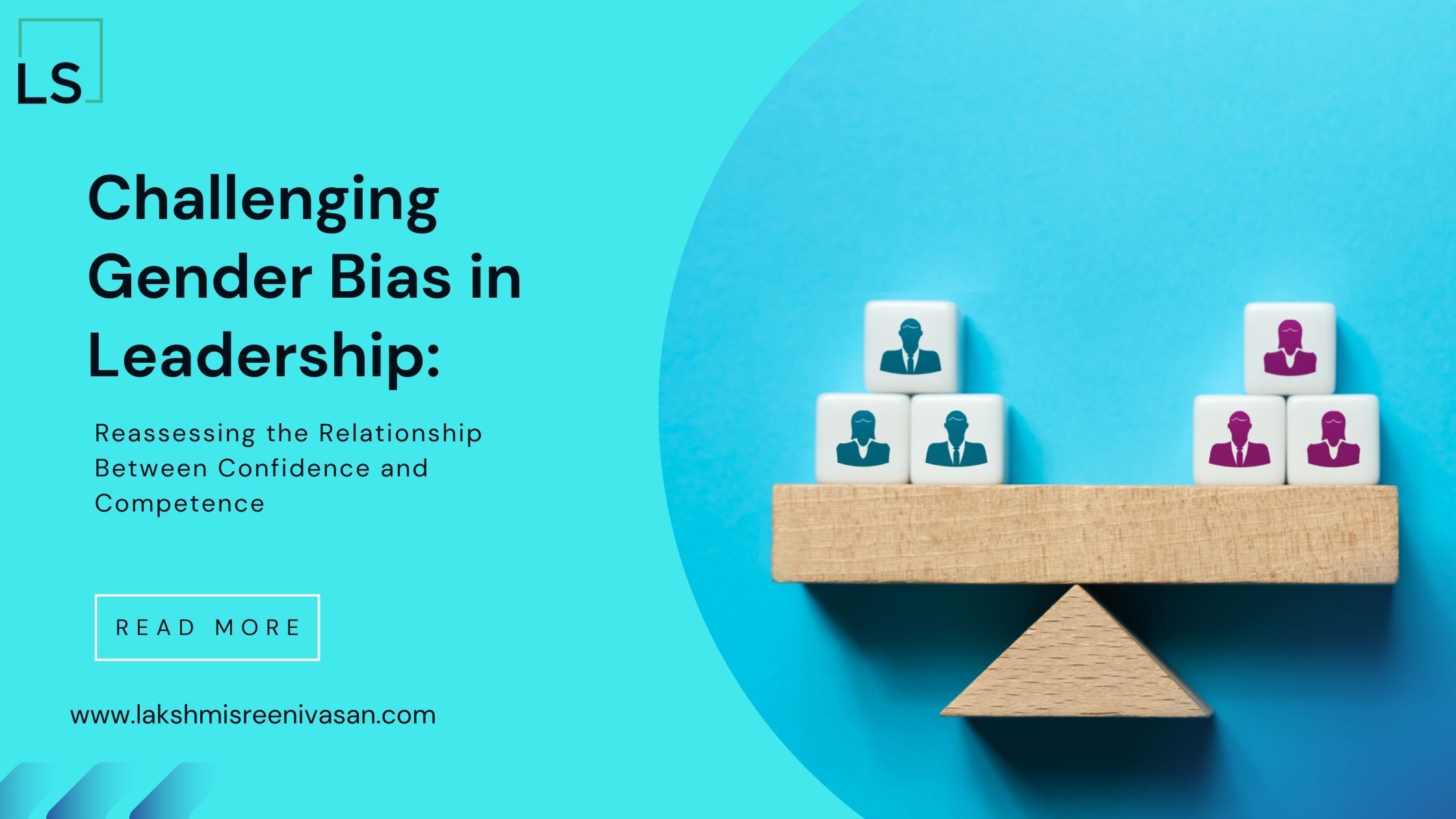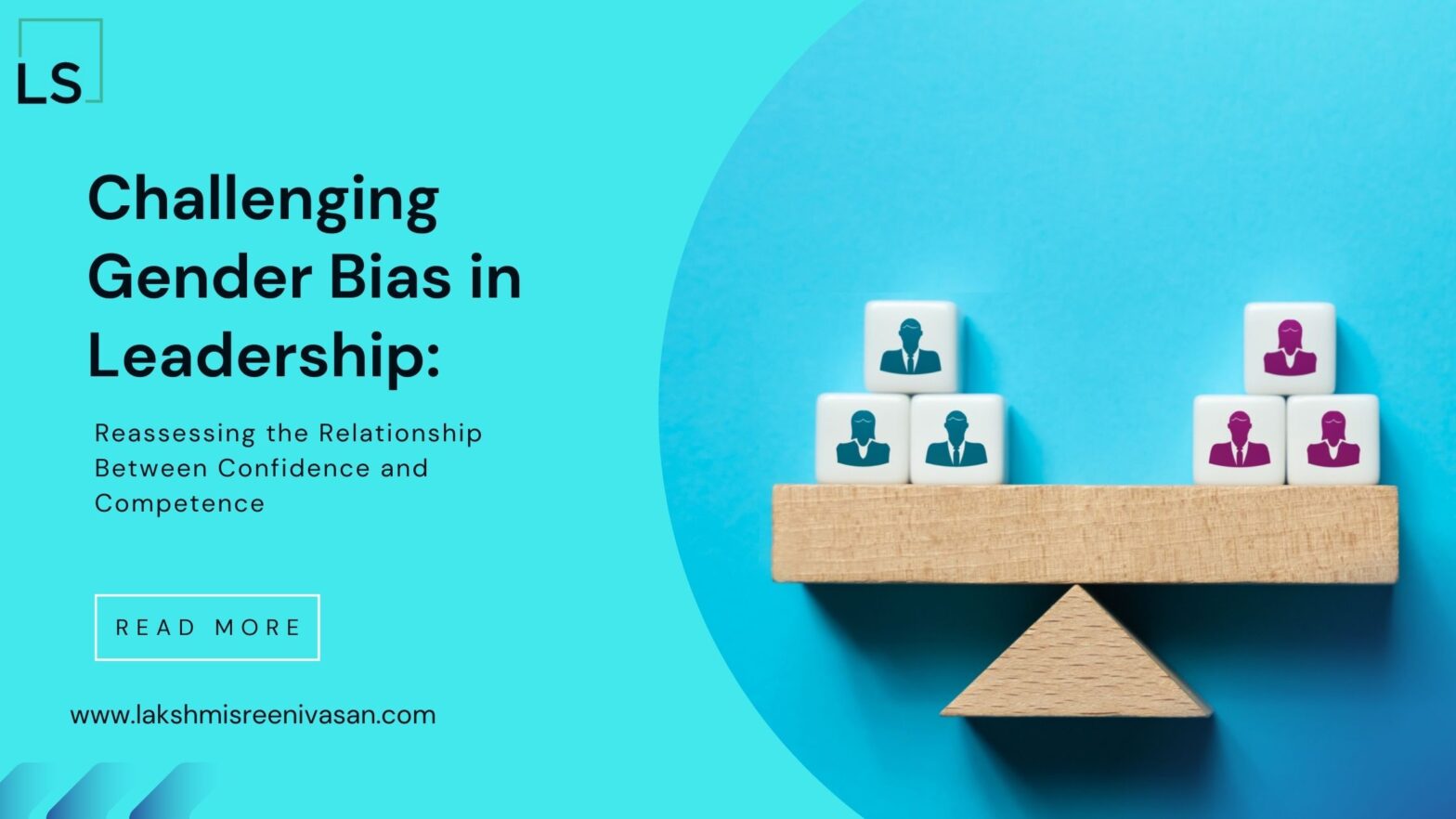
The path to leadership positions has long been fraught with unspoken expectations, often favouring a specific type of confidence – bold, assertive, and sometimes even bordering on aggression. This traditional perception creates a barrier for many talented individuals, particularly women, who may possess exceptional skills and qualifications yet struggle to be seen as “leadership material” due to a perceived lack of confidence.
One of the primary obstacles women face in leadership positions is the confidence gap. Research indicates that there is a tendency for women to undervalue their abilities in comparison to men despite having similar levels of skills and qualifications. This tendency is often rooted in societal messages internalized by individuals and exacerbated by the underrepresentation of women in leadership positions. Consequently, this perpetuates a detrimental cycle of self-doubt, leading to decreased confidence and hindered performance.
However, challenging gender bias requires more than individual empowerment—it necessitates systemic change within organizations. By re-evaluating the criteria used to assess leadership potential and promoting inclusive leadership styles, companies can create environments where confidence and competence are not dominated by gender. It involves implementing mentorship programs, fostering a culture of feedback and recognition, and actively addressing unconscious bias in decision-making processes.
Lakshmi Sreenivasan, a leading OD Consultant and ardent advocate of Diversity, Equity, & Inclusion at LS Learning Management System, challenges this outdated notion. She emphasizes the need to reassess the relationship between confidence and competence in leadership selection and development.
The Confidence Myth:
Why is confidence so often equated with competence? Here’s why this association can be misleading:
 Gender Bias: Traditional leadership stereotypes often favour a more “masculine” style of confidence, unfairly disadvantageing women who may exhibit leadership qualities in different ways.
Gender Bias: Traditional leadership stereotypes often favour a more “masculine” style of confidence, unfairly disadvantageing women who may exhibit leadership qualities in different ways.
 Focus on Externals: Confidence is often judged by outward behaviours like body language and speaking style, neglecting the depth of knowledge, experience, and strategic thinking that define a competent leader.
Focus on Externals: Confidence is often judged by outward behaviours like body language and speaking style, neglecting the depth of knowledge, experience, and strategic thinking that define a competent leader.
 Imposter Syndrome: Even highly qualified individuals can experience self-doubt, which can be misinterpreted as a lack of confidence.
Imposter Syndrome: Even highly qualified individuals can experience self-doubt, which can be misinterpreted as a lack of confidence.
Competence: A Multifaceted Approach
Leadership competence goes beyond outward confidence. It’s a complex blend of skills, knowledge, and behaviours, including:
 Strategic Thinking: The ability to analyze situations, make sound decisions, and develop effective plans for the future.
Strategic Thinking: The ability to analyze situations, make sound decisions, and develop effective plans for the future.
 Effective Communication: The ability to communicate clearly and persuasively with diverse audiences.
Effective Communication: The ability to communicate clearly and persuasively with diverse audiences.
 Collaboration: The ability to work effectively with a diverse team to achieve common goals.
Collaboration: The ability to work effectively with a diverse team to achieve common goals.
 Emotional Intelligence: The ability to understand and manage one’s own emotions, as well as of others.
Emotional Intelligence: The ability to understand and manage one’s own emotions, as well as of others.
 Problem-Solving: The ability to analyze information objectively, identify underlying assumptions, and develop well-reasoned solutions to complex problems.
Problem-Solving: The ability to analyze information objectively, identify underlying assumptions, and develop well-reasoned solutions to complex problems.
Developing Inclusive Leaders:
At LS Learning Management System, led by experienced OD Consultant and coach Lakshmi Sreenivasan, advocates for a multifaceted approach to leadership development that prioritizes authenticity and inclusivity and offers practical solutions to break down the confidence barrier:
 Unconscious Bias Training: Equip leaders and talent managers with the tools to identify and dismantle biases that hinder women’s advancement.
Unconscious Bias Training: Equip leaders and talent managers with the tools to identify and dismantle biases that hinder women’s advancement.
 Leadership Development Programs: Design programs that focus on building a well-rounded skill set for leadership, going beyond traditional notions of confidence.
Leadership Development Programs: Design programs that focus on building a well-rounded skill set for leadership, going beyond traditional notions of confidence.
 Mentorship and Sponsorship Programs: Create opportunities for experienced leaders to mentor and sponsor high-potential women, providing guidance and support.
Mentorship and Sponsorship Programs: Create opportunities for experienced leaders to mentor and sponsor high-potential women, providing guidance and support.
 Focus on Strengths: Help individuals, regardless of gender, identify and leverage their unique strengths to excel in leadership roles.
Focus on Strengths: Help individuals, regardless of gender, identify and leverage their unique strengths to excel in leadership roles.
Conclusion:
Empowering women to rise to leadership positions isn’t just about fairness; it’s about harnessing the full potential of the talent pool. Moving beyond the confidence myth and recognizing the multifaceted nature of competence can help organizations cultivate a more inclusive leadership pipeline.
Unleash the Potential of Your Entire Workforce: LS Learning Management Systems can help you bridge the gap and unlock the leadership potential within your entire workforce. We offer customised training programs to develop a new generation of competent and inclusive leaders, regardless of gender.
Contact us here or write to: team@lakshmisreenivasan.com to learn more about how we can help you build a stronger and more successful organisation.

